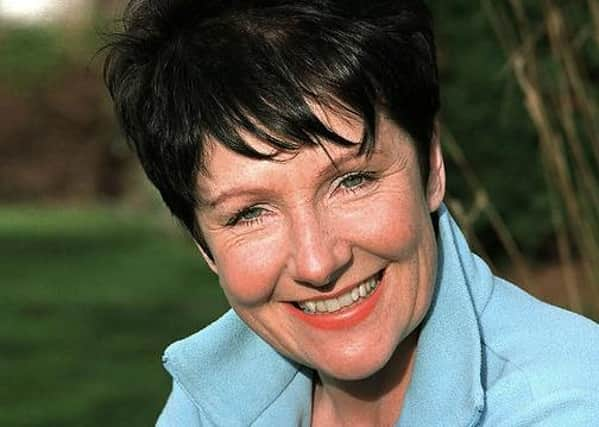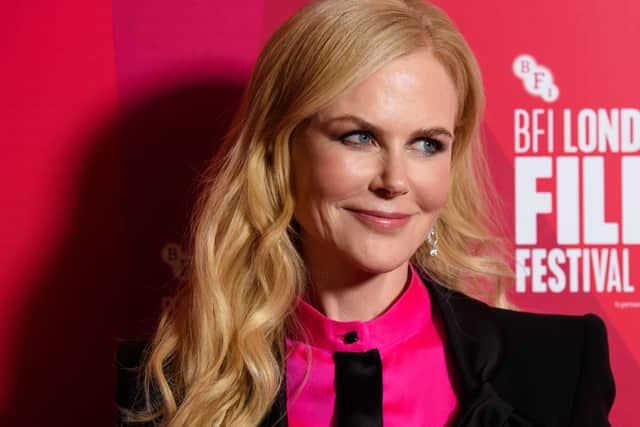Ageism is the one prejudice that’s still politically correct – David Behrens


The previous day at the same event, the Doncaster-born entertainer Tan France (no, I’d never heard of him, either) accused British TV of being “light years” behind the US in its racial and gender diversity.
Both were familiar cries, for “inclusivity” has become a mantra among politically correct executives, whether or not they are successful at implementing it.
Advertisement
Hide AdAdvertisement
Hide AdBut where was the lobby for the one remaining form of prejudice that appears still to be socially acceptable?


It fell to the former Countryfile presenter, Miriam O’Reilly, to highlight age discrimination in the silent pages of the Radio Times on Tuesday, 10 years after winning a landmark legal battle with the BBC for replacing her, at just 53, with someone younger. Despite the Corporation’s long list of equality initiatives and its efforts to promote diversity in more “woke” areas, it remained a lingering problem, she said.
The removal of Sue Barker from the host’s chair on A Question of Sport, in favour of the blokeish Paddy McGuinness, appears to be the latest example of this ageist trend within the BBC. Had they replaced a popular presenter from an ethnic minority with someone white, there would have been an explosion of moral outrage on social media, and calls for the invocation of quotas. Discrimination on the grounds of age is every bit as insidious and hurtful, but righteous indignation, it seems, is the prerogative of the young.
It’s not just a local problem. Even Nicole Kidman was reported this week as saying that Hollywood executives had wanted to throw her on the scrapheap the moment she turned 40.
Advertisement
Hide AdAdvertisement
Hide AdThese may seem like inconsequential casting choices, and on one level they are. But the screen reflects society and vice-versa. If older people are seen less often on TV, their absence in other areas is less likely to be noticed.
This is nowhere more true than in the workplace. A report earlier this month found that over-55s felt “shut out, forced out and overlooked” by the HR fraternity. Most wanted to continue working past 65 but believed the jobs market was closed to them.
Yet, at the same time, there is an unprecedented shortage of staff in a sector where the wisdom and maturity that comes with age is at its most valuable. Job vacancies in the hospitality industry, already plentiful before the pandemic, are now said to be at their highest since records began.
The situation is so acute that some restaurants in Yorkshire are having to curtail their opening hours.
Advertisement
Hide AdAdvertisement
Hide AdSo why are so few employers turning to the older workers shunned by other sectors? Could it be that they are afflicted by the same mindset as the one O’Reilly identified among her former TV colleagues – the belief that older faces are somehow less acceptable than younger ones?
Perhaps there is also a tendency among employers to hire people in their own image, or to resist more experienced candidates who may then become a threat to them. It’s a phenomenon I’ve seen time and again over the decades – and the result is always the same: each new tier of staff knowing less than the last, until eventually the whole organisation is drained of useful knowledge.
I can’t quote statistics on that but there are plenty to substantiate the belief that sidelinning older people is bad for business. Multiple studies have warned that over-55s will boycott companies and brands whom they feel are not speaking the same language.
Advertisement
Hide AdAdvertisement
Hide AdAnd ignoring the mature jobs market is also bad for the economy. The Office for National Statistics calculated this week that five per cent could be added to the country’s GDP if those aged 50 to 64 were employed at the same level as 35 to 49-year-olds.
The changes wrought by the pandemic may help level the playing field, as older workers seize the opportunity to base themselves at home as a way of extending their tenure. But in doing so they will be all the more invisible to their colleagues and bosses, which has been the problem all along. If you can’t be seen, you can’t make your indignation heard – and in the ensuing silence, older voices will be drowned in a sea of ageism – both on TV and in real life.
Support The Yorkshire Post and become a subscriber today. Your subscription will help us to continue to bring quality news to the people of Yorkshire. In return, you’ll see fewer ads on site, get free access to our app and receive exclusive members-only offers. Click here to subscribe.
Comment Guidelines
National World encourages reader discussion on our stories. User feedback, insights and back-and-forth exchanges add a rich layer of context to reporting. Please review our Community Guidelines before commenting.